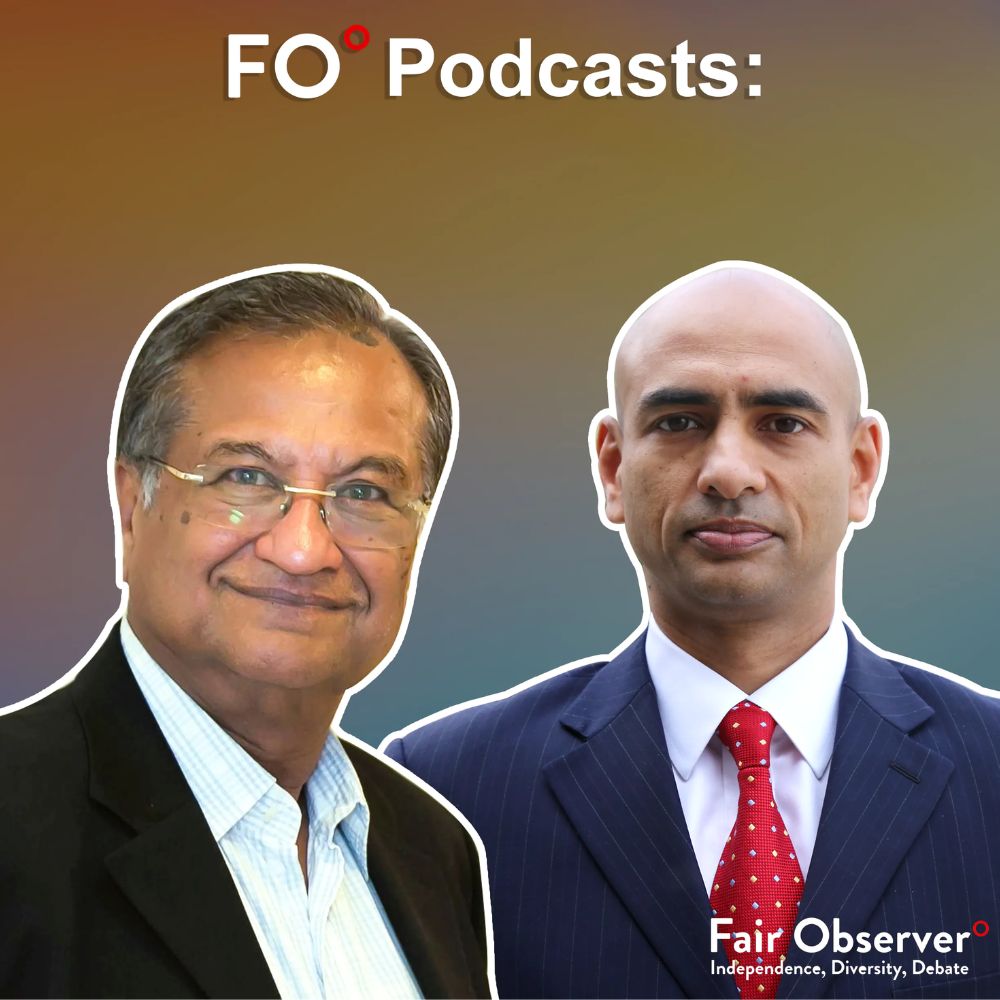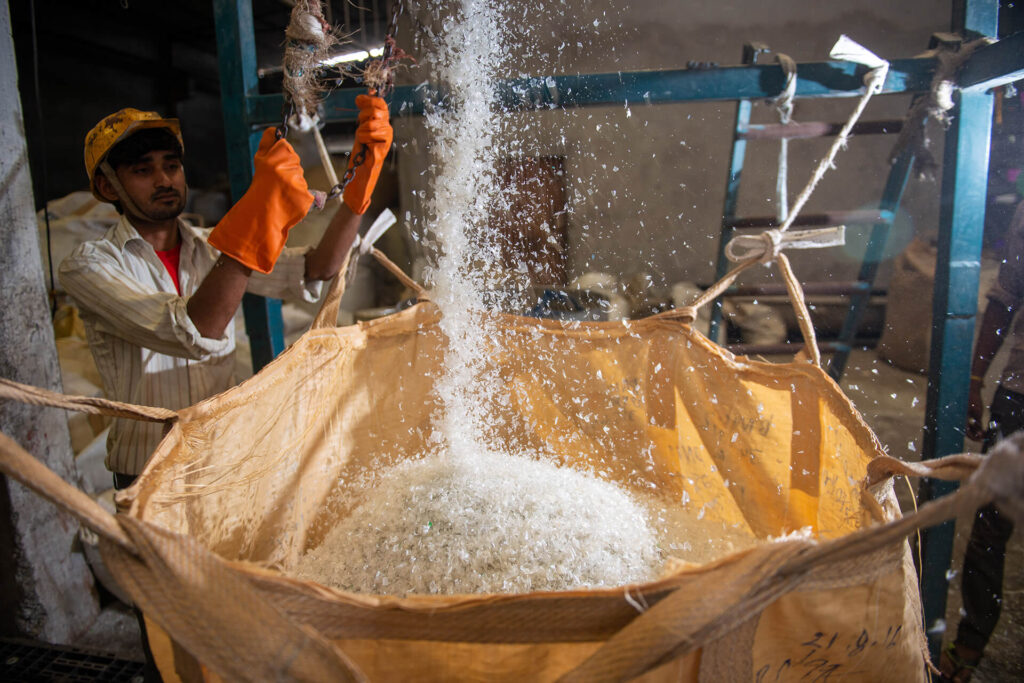Mudit Jain is a third-generation entrepreneur and a manufacturer of industrial chemicals in India. He discusses the causes of India’s unnecessarily sluggish manufacturing growth with Fair Observer’s Editor-in-Chief, Atul Singh.
The British ran India with a colonial bureaucracy designed to extract wealth, not to create it. When India won its independence in 1947, many Indians expected the dividend of independence to come in quickly. In some ways, it did — during the 1950s and 1960s, India expanded into nearly all manufacturing sectors, save for high tech and aviation. But the expansion did not survive the 1970s.
While India’s first prime minister Jawaharlal Nehru espoused many socialist policies, inspired by the then-successful Soviet Union, he was still relatively favorable to business. When his daughter Indira Gandhi assumed power, she lurched left and decimated business. During her reign in the 1970s, India became a socialist state ruled by officers of the Indian Administrative Service (IAS) and their underlings. These sycophantic officials imposed onerous regulation, high taxes and extortionate bribes, suffocating industry and squeezing growth.
Socialism killed Indian business
Under Gandhi, India nationalized key industries and heavily regulated the others. The IAS became solely in-charge of formulating and executing policy. Note that the IAS is the successor to the British Raj’s colonial Indian Civil Service (ICS). The original mission of the ICS was to collect taxes and deindustrialize India. After independence, control over the economy gave politicians opportunities for graft and rent-seeking. Together with their bureaucrat lackeys, they created a system that was altogether hostile to business.
The infamous license-permit-quota raj decimated business. In this Kafkaesque system, entrepreneurs had to run from pillar to post and grovel before bureaucrats if not bribe them. Approval from dozens of offices was necessary to do anything. After months and, at times, years of running around offices, entrepreneurs received licenses that were narrowly tailored to specific activities with strict limits on productivity. If their production exceeded the limits imposed by their license, bureaucrats levied hefty fines and extracted heavy bribes.
Gandhi was voted out in 1977 but the hodgepodge Janata Party that took charge was socialist as well and business did not get a break. India’s socialist DNA permeates all political parties, including the ruling Bharatiya Janata Party (BJP). Having tasted blood, politicians and IAS officers cannot let go of the commanding heights of the economy.
Politicians have to appeal to a poor and uneducated populace. So, populism akin to the Latin American variety is always a temptation. Until recently, labor unions were affiliated with political parties, making manufacturing tricky.
Change because of external shock
Despite the economy growing at the proverbial Hindu rate of growth, India did not change course. In the end, an external shock changed the Indian system. In 1991, the Gulf War increased oil prices. By this time, the Soviet Union was on the verge of collapse and could not send cheap oil to India to bail its socialist de facto ally out. This led to a severe balance of payments crisis and India had no choice but to turn to the International Monetary Fund (IMF) and embrace market reforms.
The IMF forced India to liberalize its economy, lower its tariffs and open its markets. Many expected Indian businesses to fold in the face of foreign competition. Instead, India’s economy grew faster than ever before. It turns out that socialism, not Hinduism, was holding back the economy. Foreign investment and capital goods flowed into India. Manufacturing got a second wind after the first burst after independence.
The boost of 1991 petered out for manufacturing in 2001 when China entered the World Trade Organization (WTO). India liberalized trade but did not lift restrictions on domestic business. The government also did not invest in infrastructure. This meant that businesses like Jain’s manufacturing operations could not keep up with their Chinese competitors.
Chinese manufacturers were able to make things with speed and scale. Chinese imports flooded Indian markets. Even as this economic tsunami was hitting the economy, India’s bureaucrats sat on files forever, demanded nonstop bribes and strangled business with red tape. High costs on inputs such as water, power and transportation made it far more expensive to manufacture domestically than import from China. As a result, many industries collapsed entirely. Liberalization internationally and overregulation domestically proved to be an unmitigated disaster for the manufacturing sector.
The toxic politician-bureaucrat nexus
After independence in 1947, India’s economic model was inspired by the Soviet Union. In this communist Mecca, experts did the economic planning and engineers implemented their plans. In India, economic planning and execution are both in the hands of an omniscient and omnipotent bureaucracy with IAS officers as feudal barons and politicians as de facto rulers. The IAS officers are invariably generalists, with little professional knowledge or deep interest in economic policymaking or the sectors they control. Bureaucrats occupy their position not because of expertise but because of loyalty to politicians and are answerable to no one.
Politicians continue to see business not as a driver of the economy but as a cash cow to squeeze for personal fortunes and election funds. In spite of the rhetoric about pro-manufacturing policies and promoting growth, the Indian system is still essentially one in which politicians dole out freebies to get votes and squeeze industry to pay the bill with heavy taxes. Ultimately, the poor are not helped either, because they see these taxes get translated into higher prices. They also miss out on manufacturing jobs and increased productivity because Indian industry is cut off at the knees and cannot compete with its foreign counterparts. Ultimately, neither the poor nor the entrepreneurs are enriched. Only politicians and bureaucrats laugh all the way to the bank. In India, this Batman-Robin duo is not robbing Peter to pay Paul, but instead robbing both Peter and Paul.
Businesses routinely find themselves compelled to make campaign contributions to politicians, lest they punish business owners with bureaucratic harassment. Such is the convoluted and complicated law of the land that it is impossible to follow it even after making superhuman efforts. So, bureaucrats can shut down any business for alleged breach of the law. As innumerable entrepreneurs and manufacturers know only too well, every bureaucrat inspector finds some grounds to find an infraction, leaving them a choice between a bribe and a fine. Inspectors can also arbitrarily shut down factories.
The Indian system does not allow corruption inadvertently. It is corrupt by design. Today, Indians impose a new colonialism on their fellow Indians. Indian politicians and bureaucrats operate in a system designed for extracting wealth, not creating it.
Unfortunately, Jain sees no change on the horizon. If things continue as they have, India will fail to achieve a manufacturing boom that emulates the 1991–2001 period.
Jain believes that India must take a page out of Japan’s book and outsource decision-making power to professionals. Boards of experts should craft regulations in consultation with industry in the interests of long-term growth, not short-sighted political gains. It is good governance, not natural resources or comparative advantage, that made Japan an economic superpower. India can be an economic superpower too if it enlists policymakers with expertise who act in the national interest instead of petty self-interest.
[Anton Schauble wrote the first draft of this piece.]
The views expressed in this article/podcast are the author’s own and do not necessarily reflect Fair Observer’s editorial policy.















Comment